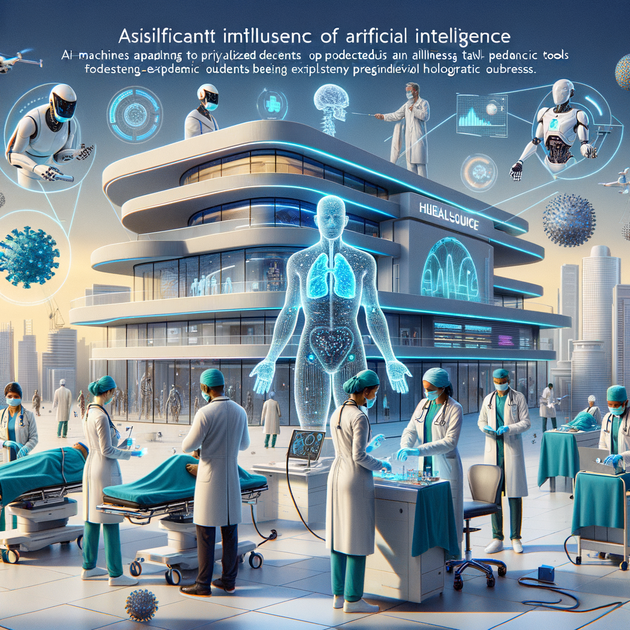How AI is Transforming the Healthcare Landscape
Imagine a world where doctors can predict disease outbreaks, personalize treatment plans, and perform surgeries with the assistance of intelligent robots. This isn’t a sci-fi dream but a burgeoning reality powered by artificial intelligence (AI). In this article, we delve into the significant transformations AI is bringing to the healthcare industry and explore its groundbreaking applications that promise to revolutionize medical care.
The Dawn of AI in Healthcare
AI has been making waves across various industries, but its impact on healthcare is particularly profound. The adoption of AI technologies in medicine is not just about enhancing efficiency; it’s also about providing superior patient care and advancing medical research.
Early Detection and Diagnosis
One of the most critical applications of AI in healthcare is its ability to detect diseases early. By analyzing vast amounts of medical data, AI can identify patterns and anomalies that may indicate the presence of a disease before symptoms even appear.
For example, Google’s DeepMind has developed an AI system that can diagnose over 50 eye diseases as accurately as leading experts, potentially saving millions from vision loss.
Personalized Treatment Plans
Every patient is unique, and what works for one individual might not work for another. AI empowers healthcare providers to tailor treatment plans based on a patient’s genetic makeup, lifestyle, and other personal factors.
IBM Watson Health is a pioneer in this area, using AI to provide personalized treatment recommendations for cancer patients. By analyzing vast datasets, Watson can suggest the most effective therapies with higher precision.
AI-Powered Surgeries
Robotic surgeries, assisted by AI, are becoming more commonplace, offering greater precision and reduced recovery times. These robotic systems can perform complex procedures with a level of accuracy that human hands often cannot achieve.

Intuitive Surgical’s da Vinci system is a prime example, allowing surgeons to perform minimally invasive procedures with enhanced dexterity and control.
Revolutionizing Medical Research
AI is also revolutionizing medical research by speeding up the drug discovery process. Traditional methods of drug development are time-consuming and costly. With AI, researchers can quickly analyze the potential efficacy and safety of new compounds.
BenevolentAI, a London-based company, uses AI to scour vast amounts of medical literature and data to identify new drug candidates, significantly reducing the time required to bring new treatments to market.
Natural Language Processing (NLP) in Healthcare
NLP, a branch of AI that enables machines to understand and interpret human language, is proving invaluable in the healthcare sector. It helps in synthesizing vast amounts of unstructured data from clinical notes, research papers, and patient records, enabling more informed decision-making.
By utilizing NLP, IBM Watson can now read and understand millions of pages of scientific literature, which aids oncologists in staying updated with the latest advancements and personalizing patient care effectively.
AI Ethics and Bias in Healthcare
While the potential of AI in healthcare is immense, it is crucial to address ethical considerations and biases. AI systems must be trained on diverse datasets to avoid perpetuating existing biases in medical care. Comprehensive oversight and transparent algorithms are essential to ensuring fairness and equity.
For instance, a study revealed that an AI system used to predict healthcare needs showed racial bias, prompting the need for more inclusive training data and stringent regulatory frameworks.
The Future of AI in Healthcare
The journey of AI in healthcare is just beginning. Future innovations hold promise for even more advanced diagnostic tools, personalized medicine, and smart clinical trials. The ongoing integration of AI technologies fosters an environment where patient care is continually enhanced, and medical knowledge evolves at an unprecedented pace.
As we witness these incredible advancements, it’s essential to stay informed and engaged with the trends shaping the future of medicine. What aspects of AI in healthcare excite you the most? Share your thoughts in the comments below!

